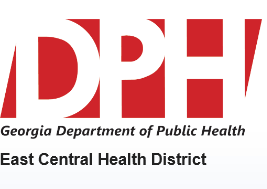On January 20, 2011, the Surgeon General of the United States, Regina Benjamin, M. D., M.D. A, issued a “Call to Action to Support Breastfeeding.” In this document, Dr. Benjamin states that “For nearly all infants, breastfeeding is the best source of infant nutrition and immunologic protection and it provides health benefits to mothers as well. Babies who are breastfed are less likely to become overweight or obese.”
Most mothers start out trying to breastfeed. In the United States seventy-five percent of mothers start out breastfeeding in the hospital. At three months more than two thirds of these mothers have introduced formula to their babies and by six months half of the breastfeeding mothers have stopped breastfeeding entirely. The American Academy of Pediatrics recommends breastfeeding for the entire first year of life, or as long as is “mutually desired” by mother and infant.
Barriers to breastfeeding that were identified in the Surgeon General’s report included lack of knowledge about how breastfeeding works, lack of support from friends and family, embarrassment, lactation problems, and issues related to employment and child care.
However, the most surprising barriers were those related to health services. “Studies have identified major deficits relevant to breastfeeding in hospital policies and clinical practices, including a low priority given to support for breastfeeding mothers and education about it, inappropriate routines and provision of care, fragmented care, and inadequate hospital facilities for women who are breastfeeding,.” (The Surgeon General’s Call to Action to Support Breastfeeding 2011)
Although most people would not have any difficulty acknowledging that breastfeeding it the “best way to feed babies”, a generalized perception that formula is “almost as good as breastfeeding” pervades our culture, even among health professionals. For example a recent survey among pediatricians reported in the Surgeon General’s Call the Action showed “that many believe the benefits of breastfeeding do not outweigh the challenges that may be associated with it, and they reported various reasons to recommend against breastfeeding.”
In addition, a study referenced by the Surgeon General reported that “a study of clinicians knowledge and attitudes about breastfeeding found that some clinicians used their own breastfeeding experiences to replace evidenced-based knowledge and recommendations they shared with their patients.”
Such beliefs and practices by health professionals discount the excess health risks associated with not breastfeeding. The Surgeon General’s Call to Action shows the following excess risks associated with full-term infants not having been breastfed:
- Acute ear infection – 100%
- Gastrointestinal infection – 178%
- Hospitalization for lower respiratory tract disease in the first year – 257%
- Asthma with family history – 67%
- Asthma without family history – 35%
- Childhood obesity – 32%
- Type 2 diabetes mellitus – 64%
- Acute lymphocytic leukemia – 23%
- Acute myelogenous leukemia – 18%
- Sudden infant death syndrome – 56%
- Necrotizing enterocolitis (among preterm infants) – 138%
For mother the excess risks for not breastfeeding include the following:
- Breast cancer – 4%
- Ovarian cancer – 27%
In an era where affordable health care is the new “buzz word”, the economic savings of increased breastfeeding rates cannot be ignored. A recent study reported in the Surgeon General’s Call to Action found that “if 90% of U.S. families followed guidelines to breastfeeding exclusively for six months, the United States would save $13 billion annually from reduced direct medical and indirect costs and the cost of premature death. If 80% of U.S. families complies, $10.5 billion per year would be saved.”
To take advantage of these economic benefits and to avoid the excess health risks associated with not breastfeeding, it is imperative that health professionals stop looking at formula usage and breastfeeding as “almost equal options”. The Surgeon General calls all who work in health care fields to take an active role in promoting, supporting, protecting breastfeeding in every way that we can.
For individual breastfeeding support, contact the WIC Breastfeeding Helpline at 1-800-992-9708.
Breastfeeding Promotion Services
For information on breastfeeding, breast pumps, etc.
Breastfeeding Coalition in Augusta- Want to know more…
There is a breastfeeding coalition in Augusta to support mothers and babies.







